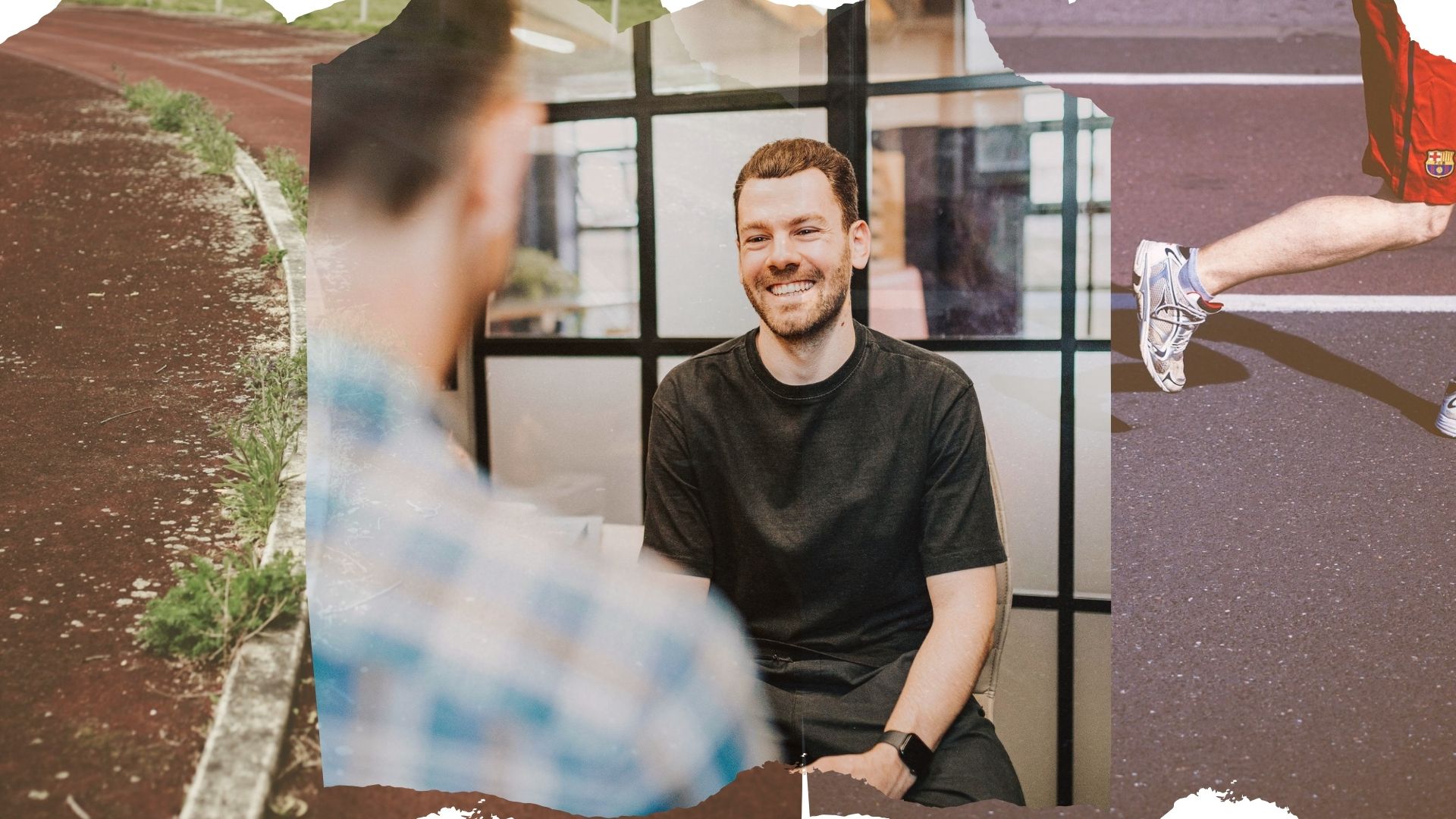How is virtual reality (VR) influencing the way athletes train and level up their game? Sidelines dives into the future of sports training to find out more.
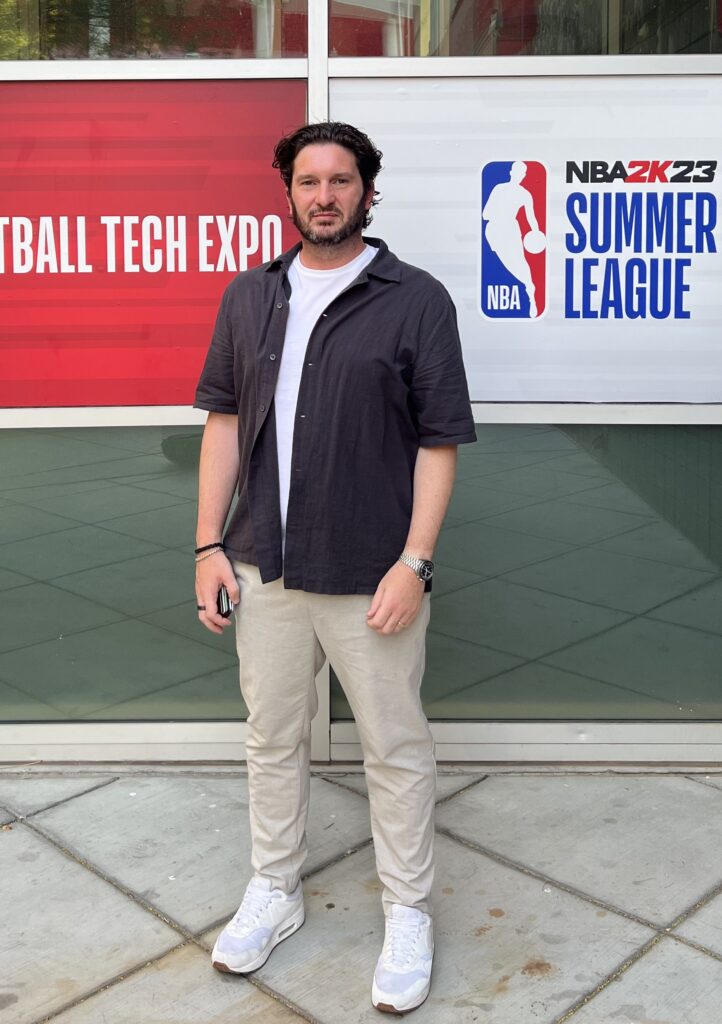
In the world of sports technology, few things are as exciting as using virtual reality to level up athlete performance.
Rezzil, whose name comes from ‘mental resilience’, is leading the charge in this space. They transform the way athletes train, recover and make split-second decisions, all with cutting-edge tech and lots of innovation.
“We started really with a view to helping players who were recovering from injury to get better and come back sooner with more confidence,” says co-founder Andy Etches. “We also had ideas about making young players more confident in developing their skills and getting on the field sooner.”
Working with almost every Premier League club, the NBA, Formula 1, American Football, tennis and more, Rezzil’s reach has grown significantly since their arrival in 2017.
“There was a gap in cognitive decision-making and mental strength in footballers. We’re using things like technology, Augmented Reality (AR) and VR in particular, to try and narrow in on the decision-making process in a repeatable manner.”
Through recreating scenarios from real games, their technology is able to test how players react to high-pressure situations.
“Using these tools we can create scenarios that are repeatable and the same for every single player. This helps us get good meaningful answers out of people that we can understand well.”
In a world where athletes are used to traditional methods of training, introducing augmented and virtual reality does of course raise some eyebrows.
“We come up against scepticism all the time. There’s often a reluctance to pick up new technologies, especially ones that look a little bit obscure like virtual reality.
“But what we’ve done is build a library and host of academic validation that will counteract that negativity. It’s hard to argue against when there are so many people that have used our systems now and had positive outcomes.”

One particular success story was with Bournemouth AFC’s Lewis Cook, who used Rezzil’s services to help him recover from a major injury.
“He had an ACL injury and he used our system which he says helped him feel more confident during a time he’s recovering from a major surgery, where footballers often struggle to deal with the outcomes and impact of these types of injuries,” says Etches.
“Seeing our systems used in that way is really great to see. We’ve had loads of cases of professional players, who don’t often head the ball, practising it in Rezzil, and then scoring goals by heading.”
Heading the ball has been under lots of scrutiny in recent years, with concerns over its long-term effects on players’ health. However, through VR, Rezzil is able to provide a safer alternative.
“Using VR enables you to replicate the feeling and movement patterns you would do when heading a real ball, but without having to actually touch it.”
“University research has shown that some of the kids perform better using our software than those who train with a real ball,” says Etches. “They’ve been scoring more goals and been more confident in addressing the ball with better technique.”
“One of the main things as well is if you head 100 balls in quick succession it’s going to hurt, but you can do it in VR all day long without feeling a thing.”
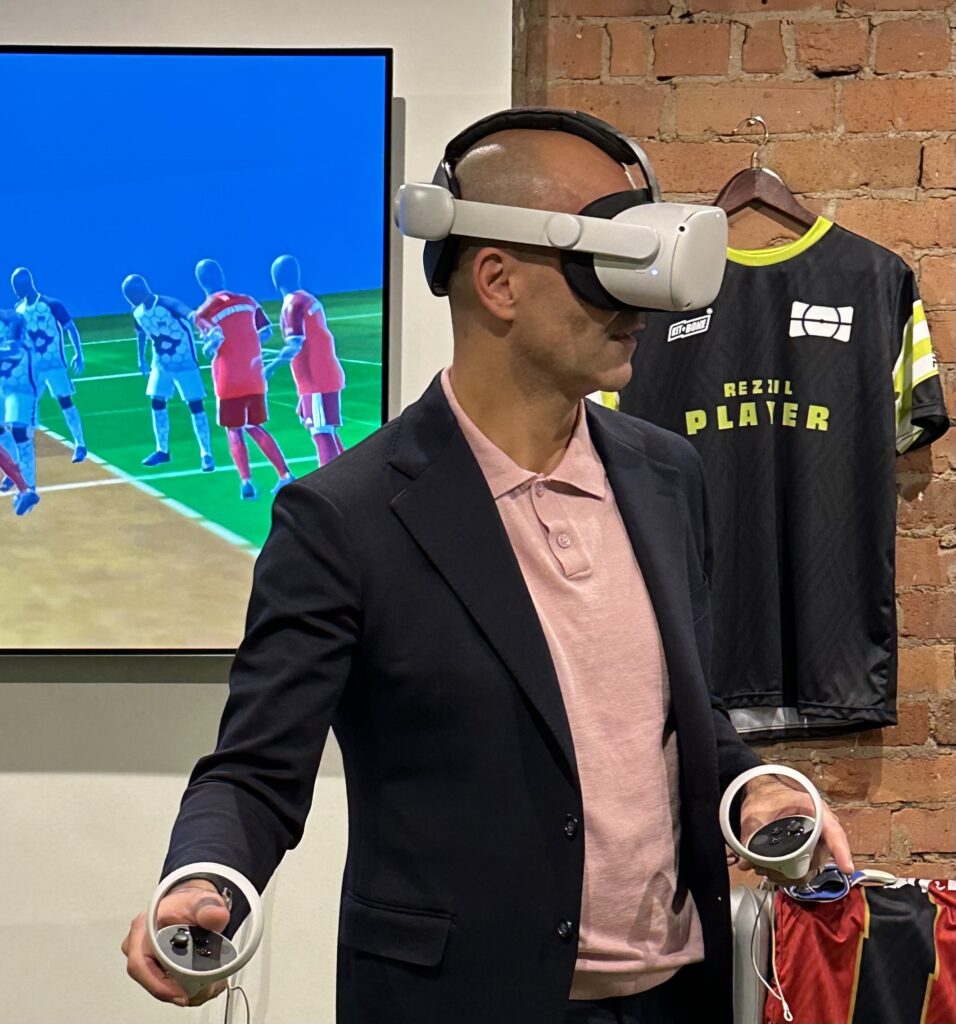
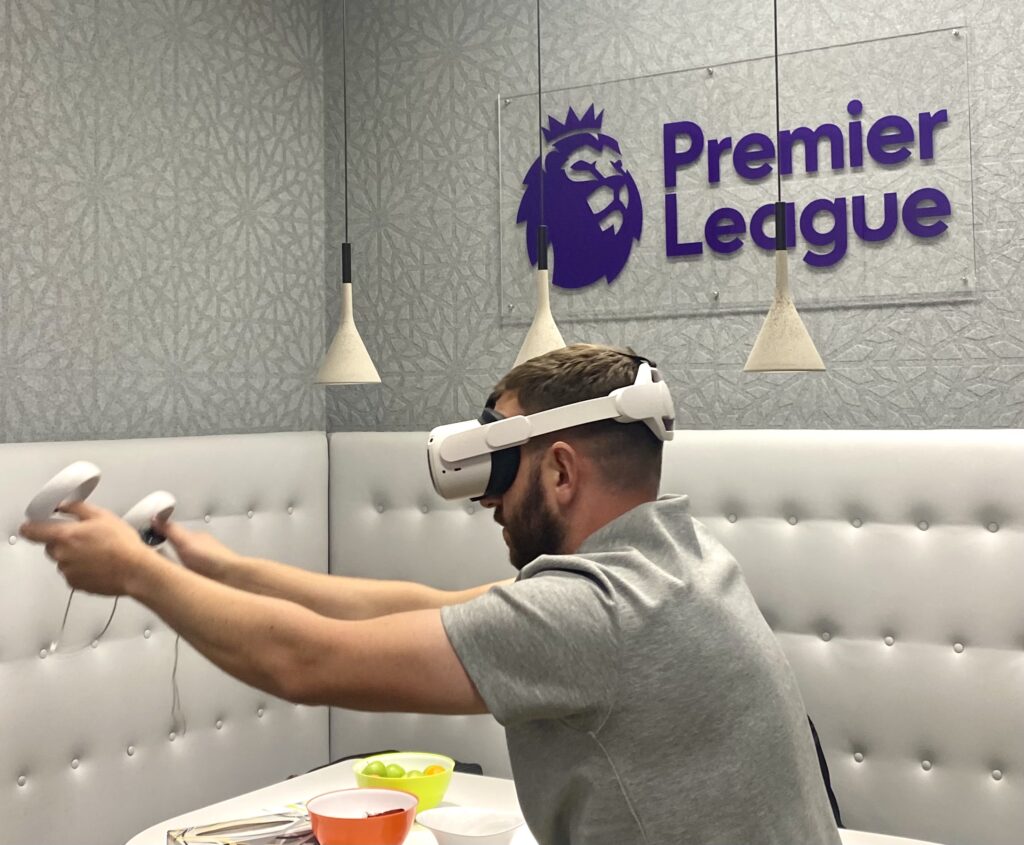

As VR continues to evolve, AI is also adding another layer of insight.
“We use AI to infer information about player performance and body pose information. The use of it is only going to become more and more useful for us as time goes on.”
With technology like VR and AI shaping the future of sports training, the possibilities are endless, and Rezzil is at the forefront of making athletes not just better, but smarter in how they play.
Sidelines Recommends

No pad? No problem
What if exercising on your period didn’t have to be uncomfortable? This is how a new wave of design is trying to make it happen.
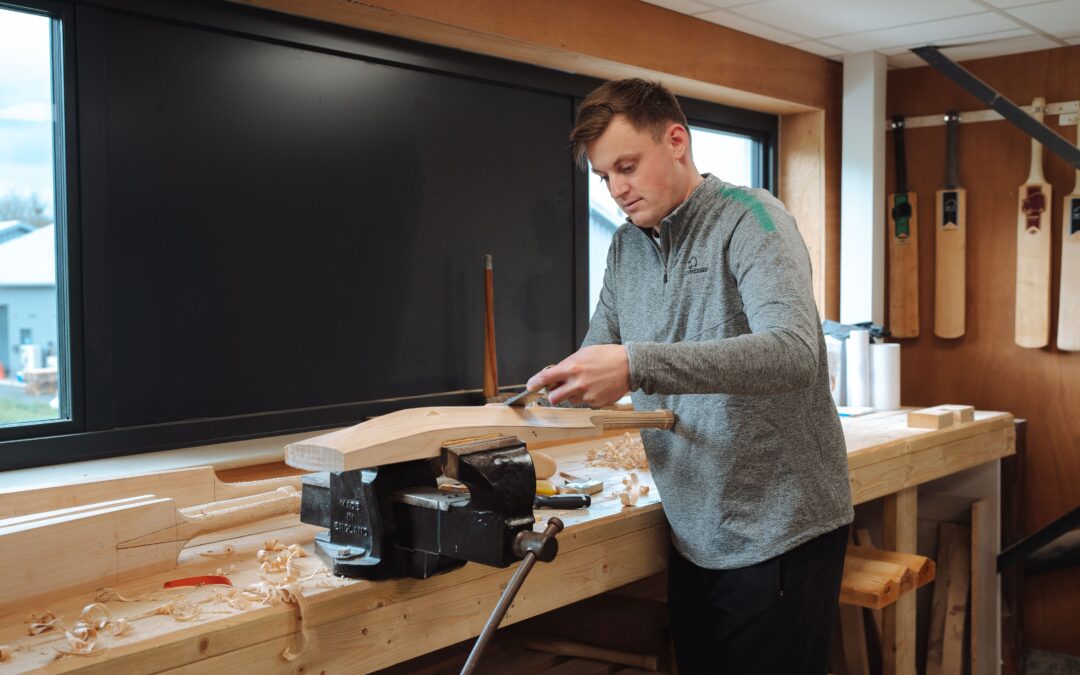
From root to pitch – how are cricket bats made?
Making a cricket bat is no easy task. This is how Wombat Cricket crafts the perfect bats… Harry Solomon, photo courtesy of Harry SolomonWe often buy cricket bats without a second thought, but at Wombat Cricket, there’s a whole lot more consideration to it. From…
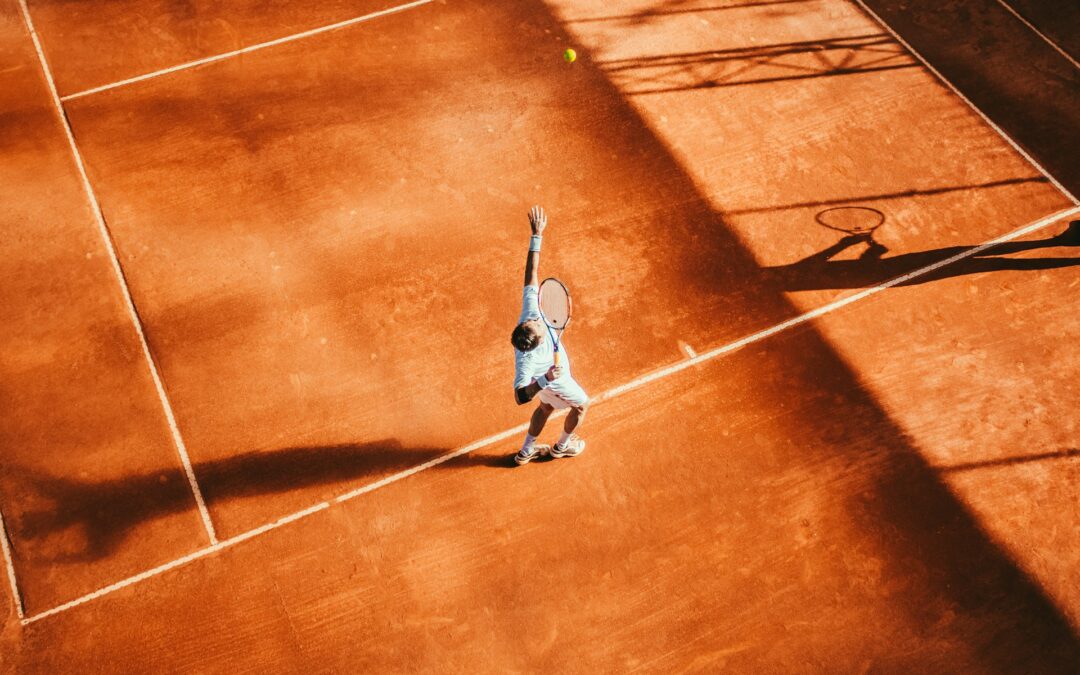
Serving up success: one expert’s impact on tennis
Think extraordinary aces happen by accident? Think again. As we build up to the Wimbledon Championships, Sidelines spoke to a world-leading expert on the tennis serve. Few actions in sport combine quiet grace and lethal power quite like the tennis serve. It can make…

